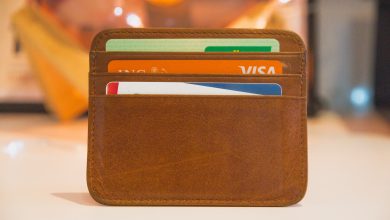Resolutions 2020: How To Finally Get Your Personal Finances On Track

As the first month of a new decade draws to a close, it behooves us to reflect on the goals we’ve set for ourselves at the start of the year – which means by now you’re probably sick of salads, craving carbs, and aching all over from exertions at the gym, or ruminating on how you’ll take your career to the next level. But one thing that perhaps still eludes you is how to rectify your personal finances and make up for the inevitable spending bonanza that was the holiday season. You want to be a savvy saver and brilliant budgeter, but taking control of your finances can feel like trying to turn back the tide with a squeegee. This is because taking control of your personal finances is a battle that needs to be fought on several fronts, in which vigilance and savvy are the price of taming this particular beast. Here we’ll look at some ways in which you can improve your personal finances in 2020 and beyond.
It begins with a budget.
Inevitably, taking control of your household finances starts with drawing up a household budget. Here are some budget templates which will really work so long as you stick to them. Those unpleasant surprises when you check your bank balance are rarely caused by huge and dreadful expenses. It’s usually the little costs – from your Monday morning Starbucks latte, to the lunch time candy bar on hump day, and the drinks after work on Friday night – that add up slowly to make a big difference. Drawing up a budget helps you to become cognizant of these little costs and rein them in so that you have a much better balance of income and expenditure. What’s more, budgeting also has a psychological purpose. It helps you to feel in control of your finances and less like your bank balance is as prone to the whims of fate as the weather.
Apps can keep you on track.
Even with a strict budget in place, it can be difficult to keep track of everything coming into and out of your bank account, especially if you’re not especially mathematically minded. The good news is that, in the 2020s, there’s an app for pretty much everything, including budgeting. These can help you to visualize your spending, allowing you to see, at a glance, which expenses are coming out of your bank account and identify any which may be extraneous like, for example, multiple subscription services. Some of the most useful apps for balancing your budget include:
Save or invest? You can do both – if you do your homework.
Many of us look at savings and investment as an either/or proposition. But the truth is that a combination of both can provide a great balance of reward and risk. Savings are a great way to potentially grow your money without risk. The trouble, however, is that most savings accounts (especially those offered by high street banks) have pretty anemic rates of interest. If you’ve had the same savings account for years, don’t make the mistake of assuming that your bank will reward your loyalty. If anything, they’re more likely to take you for granted and hold out their best rates for new customers, which is why you should always keep an eye on the best rates on the market, and move your savings around to make your money work harder for you. Alternatively, if you don’t mind not having access to your funds for a set period (usually one, two, three, or five years) you might want to consider a savings bond. These often boast much higher rates of interest than a conventional savings account, although this is not money that you’ll be able to access in the event of an emergency.
When it comes to investments, it goes without saying that you’ll need to do your homework before investing. Whether you invest in the stock market, forex, or other commodities like precious metals (or even wine), a keen understanding of the markets is essential, as is the need to avoid keeping all of your eggs in one basket. If you’re looking for a safe investment, property is still one of the best ways to go, although this may be cost prohibitive for the nascent investor. An investment broker can be a useful ally if you’re new to the world of investing, and most will combine brokerage services along with providing impartial advice and portfolio management. Needless to say, no investment is 100% risk free, and you should be wary of anyone who says otherwise. Nonetheless, combining savings with investment can be a highly effective strategy to grow your money.
And finally…don’t take your eyes off credit card debt.
For most of us, credit card debt is an unfortunate necessity. When life’s unexpected little emergencies pop up, credit cards can be very useful in helping us to get ourselves out of trouble. However, while there may be circumstances where credit card debt is unavoidable, getting mired in it certainly isn’t. It’s all too tempting to bury our heads in the sand when it comes to credit card debt and hope that it goes away. However, all this does is prolong the debt and see you throw away a fortune in interest. If you want to pay down your debts faster and retain more of your hard earned money, you need to move your debt to a new card with a better rate of interest – typically referred to as a “balance transfer” card. There are lots of balance transfer cards out there which can help you to pay off your debts faster, and while balance transfers include a small fee, this rarely compares to the potential savings they can facilitate. If you have multiple credit card debts, each with a different rate of interest, this can be very tricky to keep up with. Meanwhile, consolidating these debts into a single monthly repayment can make them much more manageable and may even see you spend less on interest. What’s more, it can even potentially improve your credit score because your multiple debts are replaced with a single new one – meaning you’ll be able to get better products with more advantageous rates of interest in the future.
While every new resolution may not stick, let 2020 be your year for finance. Keeping track of your spending, adding a few helpful tools, and looking to your future, as well as keeping the present in check will add up fast, helping you create a new financial lifestyle than can sustain well into next year and beyond.



